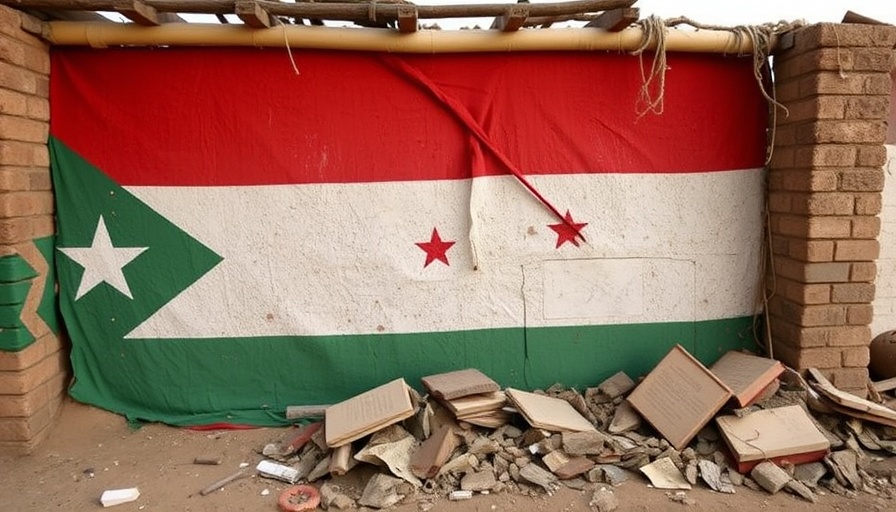
The Destructive Toll of War on Sudan's Infrastructure
The ongoing conflict in Sudan has left a devastating impact on the nation’s infrastructure, necessitating a significant rebuilding effort. This destruction poses serious implications not just for Sudanese citizens but for investors, policymakers, and international stakeholders invested in the African economic landscape. With the war displacing millions and crippling vital resources, the question arises: how can Sudan recover, and what role will regional and global partners play in this process?
The Cost of Reconstruction: A Strategic Opportunity
Rebuilding the shattered infrastructure will undoubtedly be costly, with estimates suggesting that hundreds of millions of dollars are needed to restore essential services. However, for investors and businesses eyeing Africa’s potential, this could represent a unique opportunity. The influx of international funds and expertise required for reconstruction could also facilitate the development of more sustainable practices and technologies. Engaging in this rebuilding effort not only serves humanitarian interests but could also yield lucrative returns as the country slowly stabilizes.
A Regional Approach: Collaboration and Stability
Policymakers must consider the geopolitical dimensions of Sudan’s recovery. The role of surrounding African nations, as well as external powers like the United States and China, may dictate the pace and success of Sudan’s reconstruction. Initiatives similar to the African Union's engagement in peacebuilding can create a stable environment conducive to reconstruction. Collaboration among member states in a post-war recovery framework could foster a sense of regional solidarity and help address broader economic challenges in the Horn of Africa.
Future Trends: Lessons for Africa's Rebuilding Initiatives
The situation in Sudan serves as a vital case study on the socio-economic impacts of conflict and rebuilding in Africa. With visible lessons learned, countries facing similar challenges could draw from Sudan's experience as they embark on their own recovery paths. Implementing effective governance, fostering transparent foreign relations, and prioritizing sustainable development are crucial strategies moving forward.
 Add Row
Add Row  Add
Add 


 Add Row
Add Row  Add
Add 

Write A Comment